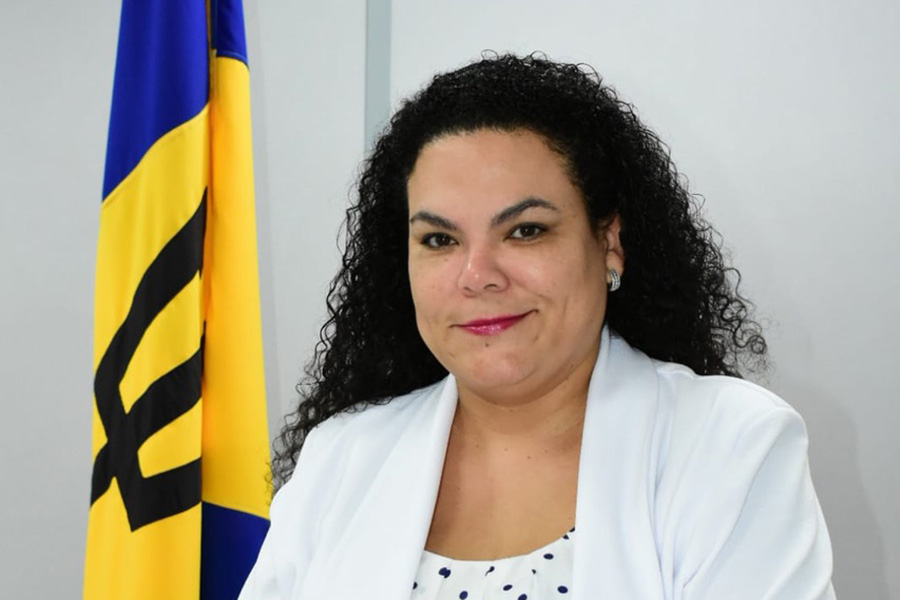
The Barbados Water Authority (BWA) was established in 1980 to monitor, assess, control and protect the water resources of the island nation. In 2018, a new board was installed with the aim of restructuring the BWA from the ground up in a bid to turn it into a profit-making enterprise through potential cooperation with private investors, while also maintaining the stability and sustainability of Barbados’ water supply. In this interview, Chairwoman Leodean Worrell discusses the current overhaul of BWA being undertaken by the new board, the new focus on operations and maintenance, and opportunities for German investors in entering into joint ventures with BWA
You were appointed chairwoman of the new board in 2018 with the aim of turning around BWA. What challenges have you faced on this journey towards turning BWA into a profit-making enterprise?
When we came on as the board in July 2018, BWA had some serious challenges – some of its own making and others simply due to bad management and bad decisions at the board level. Navigating that provided a challenge. In the beginning, we knew that going in. We adopted a sort-of disruptive style of management. For example, there were a number of questionable contracts we found when we came in. The government was clear in its mandate that it did not want Barbados to develop a reputation that if you entered into a contract and there was later a change in government, your contract will be voided. So we had to renegotiate these contracts and not just terminate them. If you’re looking for foreign investment, there’s a certain degree of stability that you require. That stability will inherently find itself in the fact that investors can rest assure that a contract will be honored.
There is a lot of potential within the Barbados Water Authority to become a profitable enterprise. But, at the same time there are a lot of basic things that still need to be done and things that did not get attention under previous governments. For instance, we have a department within the Barbados Water Authority called Operations & Maintenance. That was never given any attention but for us it’s a primary focus.
We developed a maintenance schedule for all of our plants; we ensure that sufficient stock is there to do what needs to be done. So it is a completely different approach. Of course signing contracts is important but if the foundations of this organization aren’t correct, we can’t build on anything. You can build whatever you want once your foundation is correct. And Barbados has the additional challenge of having to do all this while going through an IMF program, where we are restricted in terms of our ability to acquire debt.
How much of your revenue do you allocate for renovations and maintenance?
We have been in office now for 16 months and this is only something that is being addressed for the first time. To change all of the old pipes and mains that we have to modernize the Barbados Water Authority will cost about $2.9 billion and we just don’t have that money. So it’s a balancing exercise. During our time in office so far as a board, outside of establishing a proper governance framework, one of the things we have been able to accomplish is the completion of a new pumping station in Trents; which has improved the distribution of water along the west coast of the island, and this in turn alleviates water supply in other areas of the island.
Germany is big in technology and engineering. So where do you see the potential for German investments in Barbados’ water resources?
We are a groundwater country and it takes up to three months for the rainwater to get to our aquifers; but, only 10% makes it to the aquifers; the rest all runs off to the sea. So, as a board, one of the things we are looking at, is how we can explore rain catchment. The country does have wells, so how can we ensure that the water is actually collected by these wells. Last year, we started an active burst pipe repair program and we have happily extended that program and focused on getting the staff involved in coming up with solutions. It has worked tremendously in terms of reducing the amount of water loss.
When I came on board, we had non-revenue water of about 60%. That’s a lot for an island of this size. In terms of these sorts of initiatives that would seek to address some of these challenges, joint ventures would be certainly something BWA would look to entertain with German investors. But, by the same token, just because the BWA is restricted in its borrowings, it doesn’t mean that as Chairman I will permit a joint venture agreement that disadvantages the BWA or the nation. At the end of the day, water is a human right. I did not spend the last 14 months of my life negotiating out of egregious contracts to then enter into contracts irresponsibly that will not fairly benefit the BWA.
I think it is imperative investors understand that we are tough negotiators. We are not unreasonable but Barbados is an island that relies on tourism. It therefore requires stable and sustainable production of water to meet the needs of all of its citizens and all of its visitors and it that regard requires management that is firm and sure.